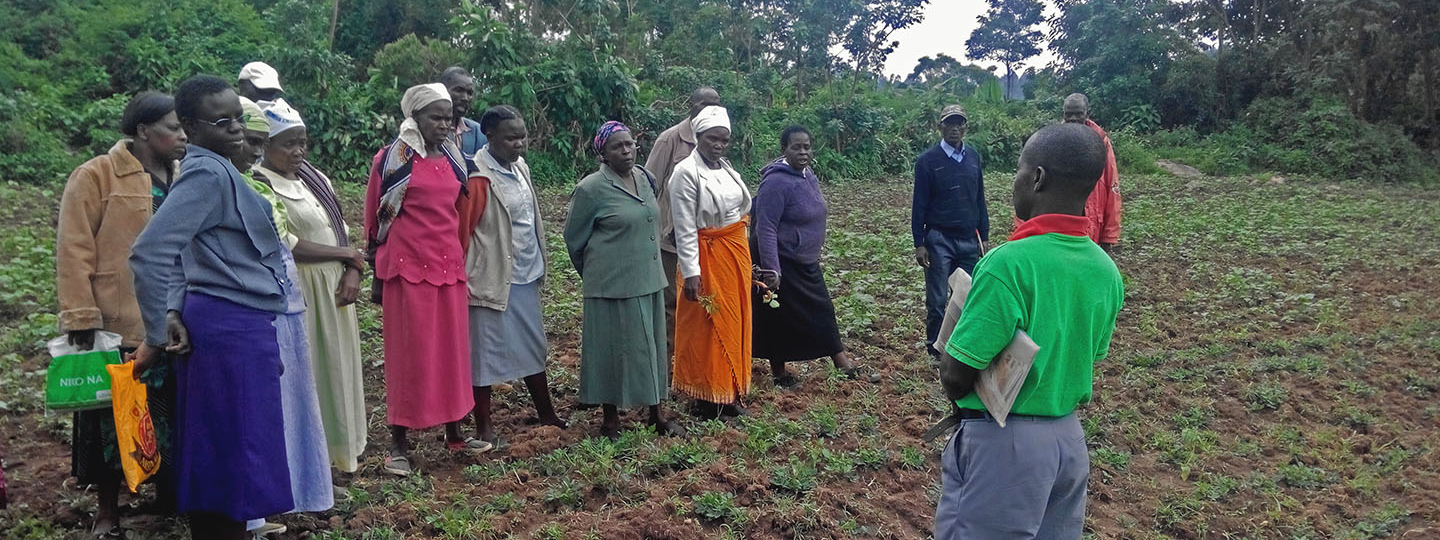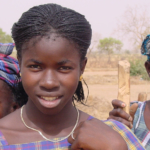


Kenya Agricultural and Livestock Research Organization
Appropriate Rural Development Agriculture Programme (ARDAP), Community Rehabilitation& Environmental Protection Programme (CREPP), Agriculture & Environment Programme (AEP), Egerton University, University of Nairobi, Community Action for Rural Development (CARD), AVENE, Rural Energy & Food Supply Organization (RESFO), Cornell University
Uganda and Kenya
11/2017—11/2020
Multipurpose grain legumes can play key roles in agroecological intensification (AEI) of smallholder systems. They not only increase nitrogen availability, but also improve soil health, food security, household nutrition, and economic opportunities for resource poor farmers. Significant productivity increases have been recorded by previously funded phases of the project through the incorporation of various grain legumes into Nandi smallholder farming systems. Rotations of grain legumes (beans, soybean, groundnut, and lablab) with cereals led to improvements in soil fertility, resulting in higher yields of both legumes and cereals. In addition, groundnut and lablab suppressed the crop disease Striga by up to 87% compared to beans, the most commonly cultivated grain legume in Nandi systems. Participatory screening of grain legumes led to identification of species and varieties tolerant to major pests and diseases. Farmers have adopted these grain legumes, improving household income and their food and nutritional security.
In spite of these gains, opportunities still exist along grain legume value chains to further improve productivity and profitability by addressing factors that constrain the realization of full benefits. For a new phase, the project team proposes to conduct a more nuanced spatial analysis to better understand the biophysical and socio-economic smallholder contexts so that legume options can be better tailored to enhance impact. Research will target a better understanding of soil health factors and effective integrated pest and disease management strategies. Community-based seed production systems are in place, but farmer groups need additional capacity strengthening on production of quality seeds, group governance, and financial literacy to improve their performance and seed supply to the communities. The project has facilitated farmer groups to produce commercially viable porridge flour products. However, additional research related to the products is required so that they conform to quality, safety, and consumer acceptability standards. Successful research outputs will be scaled out in collaboration with six NGO partners (Avene, ARDAP, REFSO, AEP, CREPP and CARD).
The Nandi smallholder farming systems are characterized by high population pressure on land, high levels of poverty, low productivity, food insecurity, and malnutrition. Maize and beans are the staple crops dominating the systems but the yields are low. The research conducted by the project during the previous phases demonstrated that multipurpose grain legumes have the capacity to improve the productivity of the systems. Significant productivity improvements were recorded following the incorporation of soybean, groundnut, and lablab into systems. Striga reduction and soil fertility improvements increased outputs of both legumes and cereals. But biotic and abiotic stresses (including drought, soil acidity, pests and diseases, and phosphorus deficiency) constrain the productivity of the grain legumes, significantly reducing their potential yields. The proposed new phase of research intends to fine tune strategies for addressing these constraints. More specifically, the team will establish influential soil health factors and appropriate management strategies for addressing them. The team also proposes to identify and address gender-related factors influencing legume productivity, profitability, marketing, and equitable sharing of benefits. To strengthen farmer capacity to benefit from legume interventions, the project will contribute to improving the entrepreneurial skills of farmers involved in legume seed production and the production of value-added legume products. They will also continue to use formal and informal training and mentoring to strengthen the capacities of students and farmers to engage in problem-solving research.

